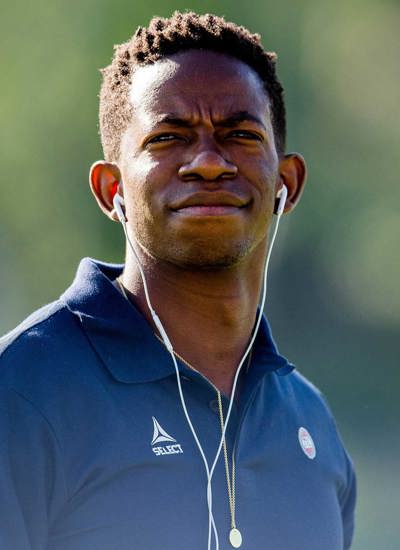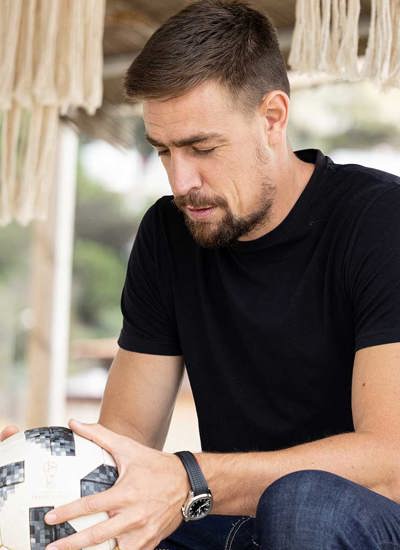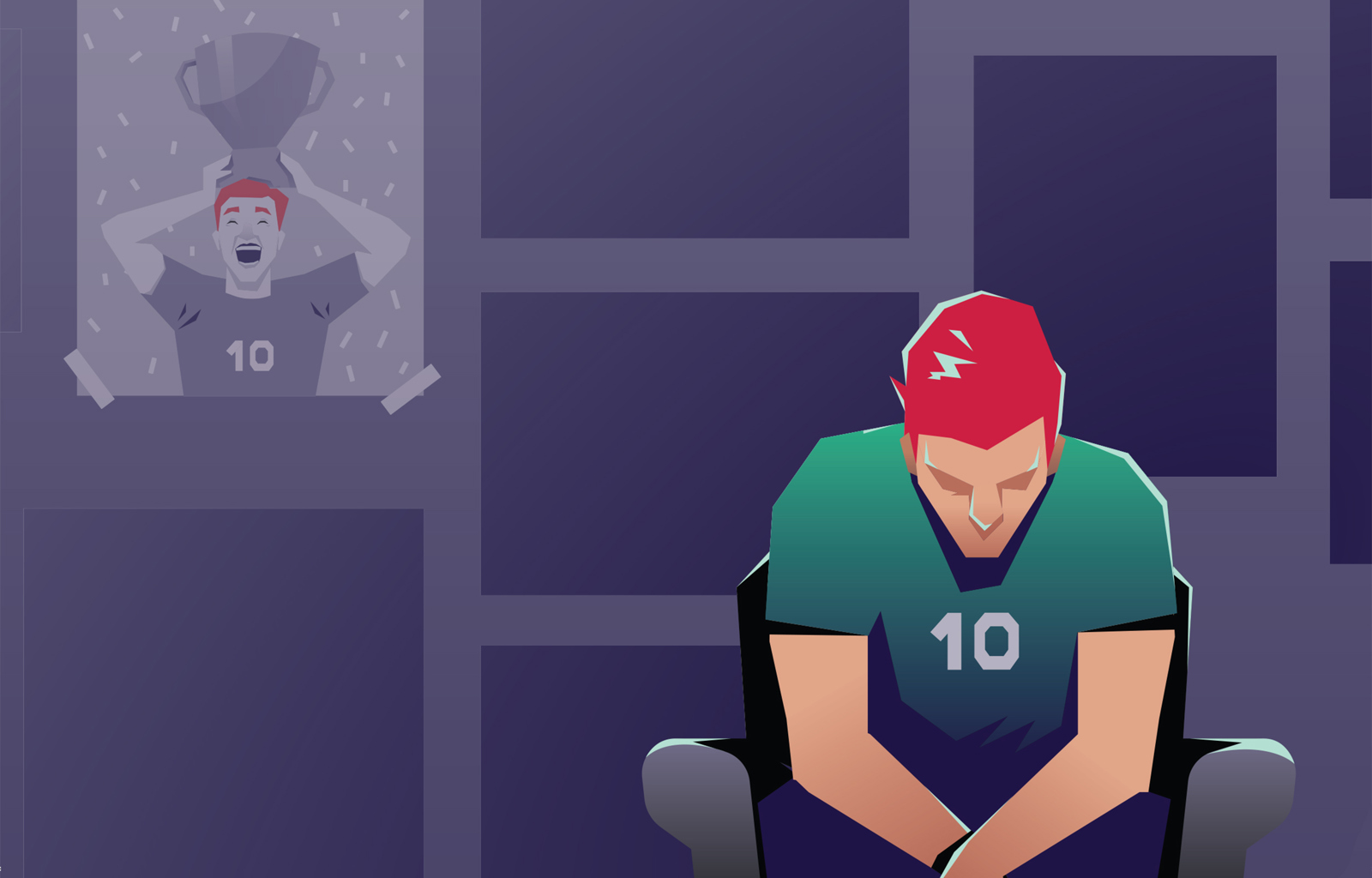
- 10 October is World Mental Health Day
- Raising awareness of mental health struggles faced by footballers is one of FIFPRO’s most pressing concerns
- Players around the world have bravely shared their personal stories with FIFPRO on mental health
The World Health Organisation recognises World Mental Health Day on 10 October – a time to raise awareness about mental health and wellbeing.
Raising awareness of mental health struggles faced by footballers in today’s game is one of FIFPRO’s most pressing concerns.
Research shows that up to 38 percent of footballers suffer from mental health symptoms during their career.
FIFPRO, with the help of various mental health experts, created a toolkit for its member unions to help educate their players about symptoms, stressors, stereotypes and how to empathise.
• Everything you should know about mental health and wellbeing
• Signs and symptoms to help you identify mental health issues

Various player unions are set up to support players with questions about mental health and have established partnerships with specialists who can help players.
Last year, FIFPRO also set up a Mental Health Taskforce – a structured support group for players from all national teams to have a safe space to share their stories and learn from others.
Many footballers around the world have bravely shared their personal stories with FIFPRO, all emphasising the importance of talking about mental health. Take a look at what some had to say.
Mushaga Bakenga
Mushaga Bakenga once contemplated quitting football, but opening up about his mental health helped the Norwegian forward stay in the game. In a recent op-ed on FIFPRO.org, Bakenga discusses why clubs introducing mental health professionals can greatly help players on and off the pitch.
He said: “A mental health coach is a critical investment in the well-being of any team. In the grand scheme of the game, it’s not a particularly lavish expense, and the benefits for the players’ performance would be more than worth the investment.
“When clubs hire a mental health coach, even part time, they aren’t just providing a service for the players – they’re sending a message. It shows you see them as human beings, who are shaped and affected by events both on and off the pitch.”
Mushaga Bakenga: "Investing in players’ mental health should be a top priority"
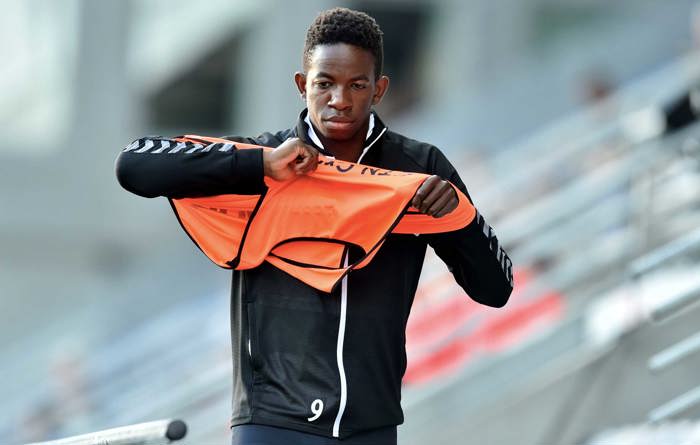
Sebastian Coates
Before the 2022 World Cup, Uruguay international Sebastian Coates spoke movingly about the pressures of top-level football, the suicide of his team-mate Santiago ‘Morro’ Garcia, and the importance of footballers – and everyone – sharing their feelings.
The Sporting Lisbon defender was part of FIFPRO’s #ShineALight campaign, a series for international footballers to discuss their personal experiences with a view to bringing attention to important social and industrial issues.
Coates said: “There is more pressure in football now compared to 10 or 20 years ago. There is much more media coverage, many more demands on everyone involved in the game.
“As players, let us use our unique platform to share our experiences, the good ones and the bad ones to help others. Check in with your team-mates, share your problems, try to find solutions together.”

Brendan Hines-Ike
DC United defender Brendan Hines-Ike recently detailed how suffering serious back-to-back injuries threatened to end his playing career. Excruciating physical pain, which left the American having to “crawl to the bedroom at night”, was also affecting his mental health.
Hines-Ike reveals how taking each day as it came during his recovery, rather than setting goals, was “better for my head because there was no expectation”.
He said: “The toughest moments in my career have been the moments I've looked back at with the most pride. I'm not a huge believer in saying, ‘trust the process’. However, if you start to look too far ahead in your career and in your life, then you start putting too many unnecessary expectations on yourself.
“Instead, you should just do what you need to do each day and accomplish that to your fullest. Those little battles that you win end up taking you a lot further than you could have imagined.”
Brendan Hines-Ike: "The little battles that you win end up taking you a lot further"

Steph Labbe
In February 2022, former Canada goalkeeper Steph Labbe reached out to FIFPRO about creating a structured support group for national team players to have a safe space to talk about their mental health. It resulted in the formation of a Mental Health Taskforce that would be the cornerstone for helping players deal with post-tournament mental health.
Talking about her own experiences, the Olympic champion said: “I wasn’t educated on the potential ‘post tournament blues’ and the incredible highs and lows that come with those emotions. I was already in a challenging space where I felt like it was all just too much to reach out and accept help.
“From the outside, we often see one perspective of an athlete through the media and we assume they are in a good space. But even when I experienced success, it didn’t always equate to happiness.
“By encouraging players to share their stories, we are breaking the stigma of mental health. Talking about mental health doesn’t mean you’re weak – in fact, this vulnerability shows self-awareness, and incredible strength and courage.”

Shannon Lynn
Former Scotland international Shannon Lynn was 22 years old when her partner suddenly passed away from meningitis. The Vittsjo GIK goalkeeper says speaking openly about her mental health only helped.
She said: “What I would love to continue to promote is that we can normalise speaking about the way we feel, so that it doesn't have to be such a taboo thing; that it doesn't have to be a big deal when it is in fact a big deal.
“Football genuinely saved my life. It kept me from going way underneath the dark hole that I was floating in. It gave me a routine. It kept me moving forward. It kept me getting up when I could have stayed in bed for many days in a row.”

Lucia Ondrusova
Former Slovakia forward Lucia Ondrusova revealed to FIFPRO how a mental health coach made a positive difference, not just in her playing career, but life in general. Having the coach involved with the national team helped “create a healthy space” for players to communicate with each other about their mental health.
She said: “It was strange in the beginning as we had never experienced anything like it. I remember being so nervous in our first group session to speak out when asked if we had any issues.
“I wasn’t used to interacting in this way, so I had no idea what to expect, but as soon as I opened my mouth and started to talk, I already felt a huge weight lift from my shoulders. I had just taken the first step to open communication with my team and it felt amazing, even more so when we starting to work on our issues together.”
Lucia Ondrusova: "How a mental health coach made a positive difference in my life"
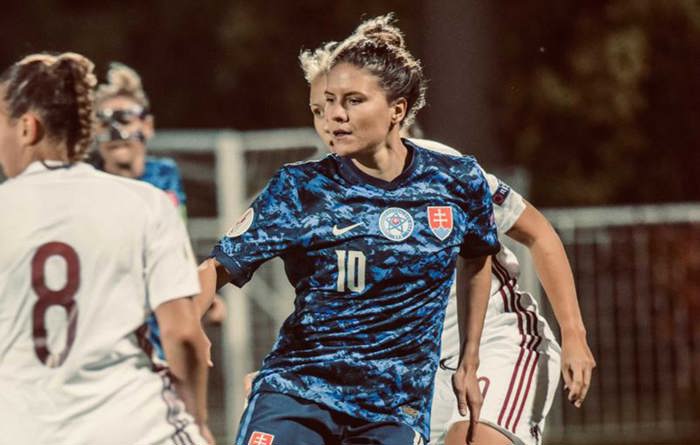
If you’re a footballer seeking mental health support, your national player association is always on hand to help.
